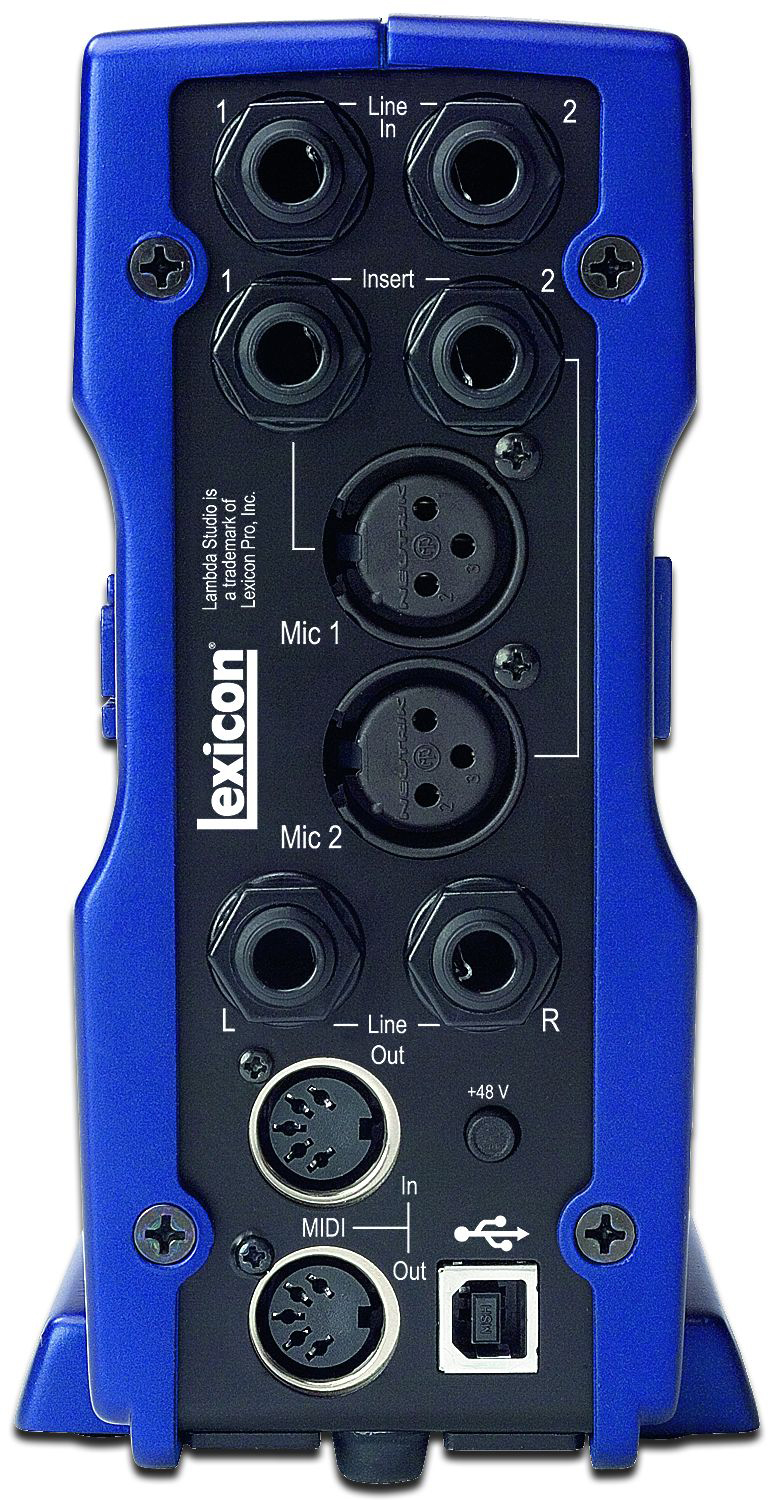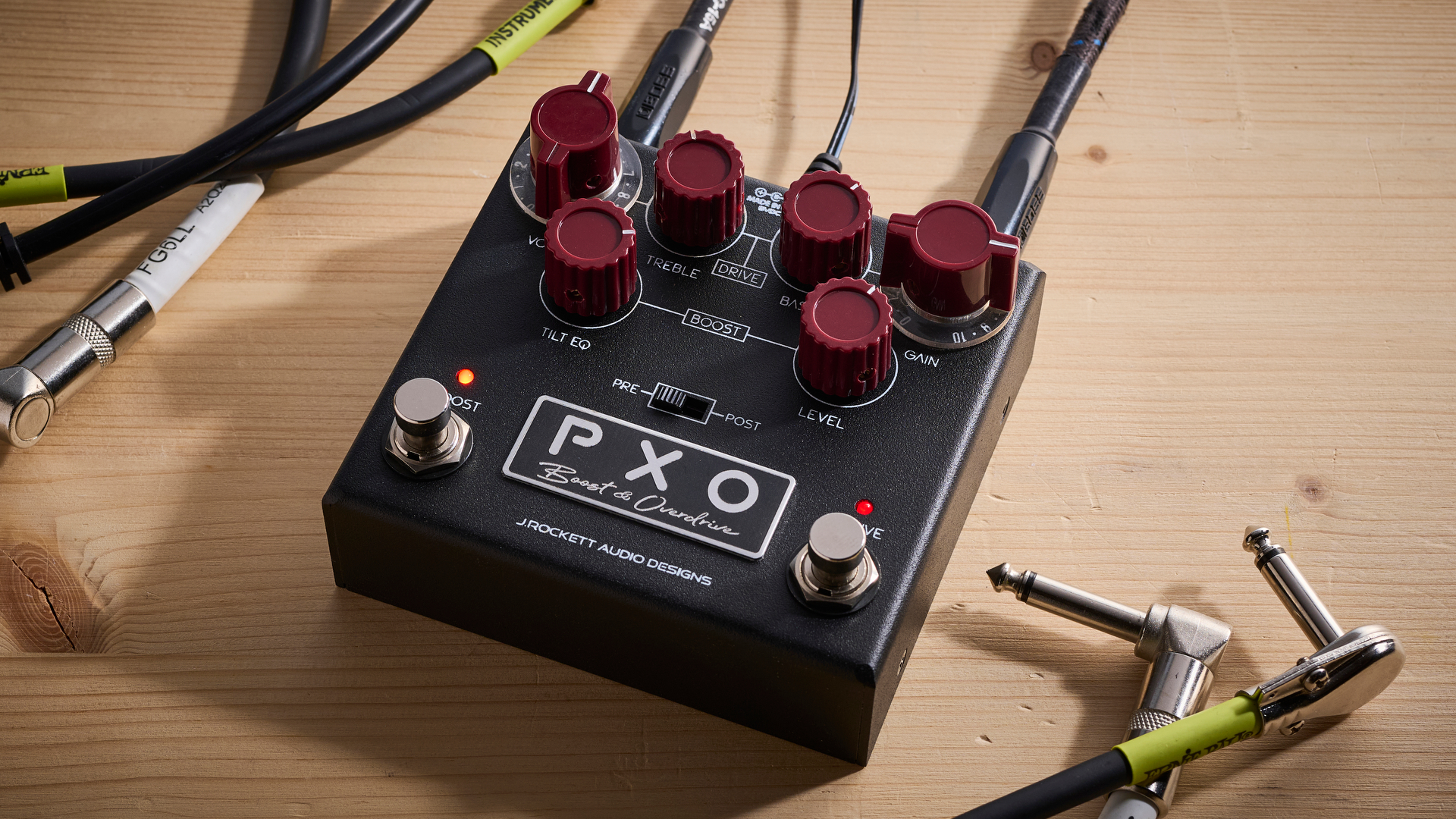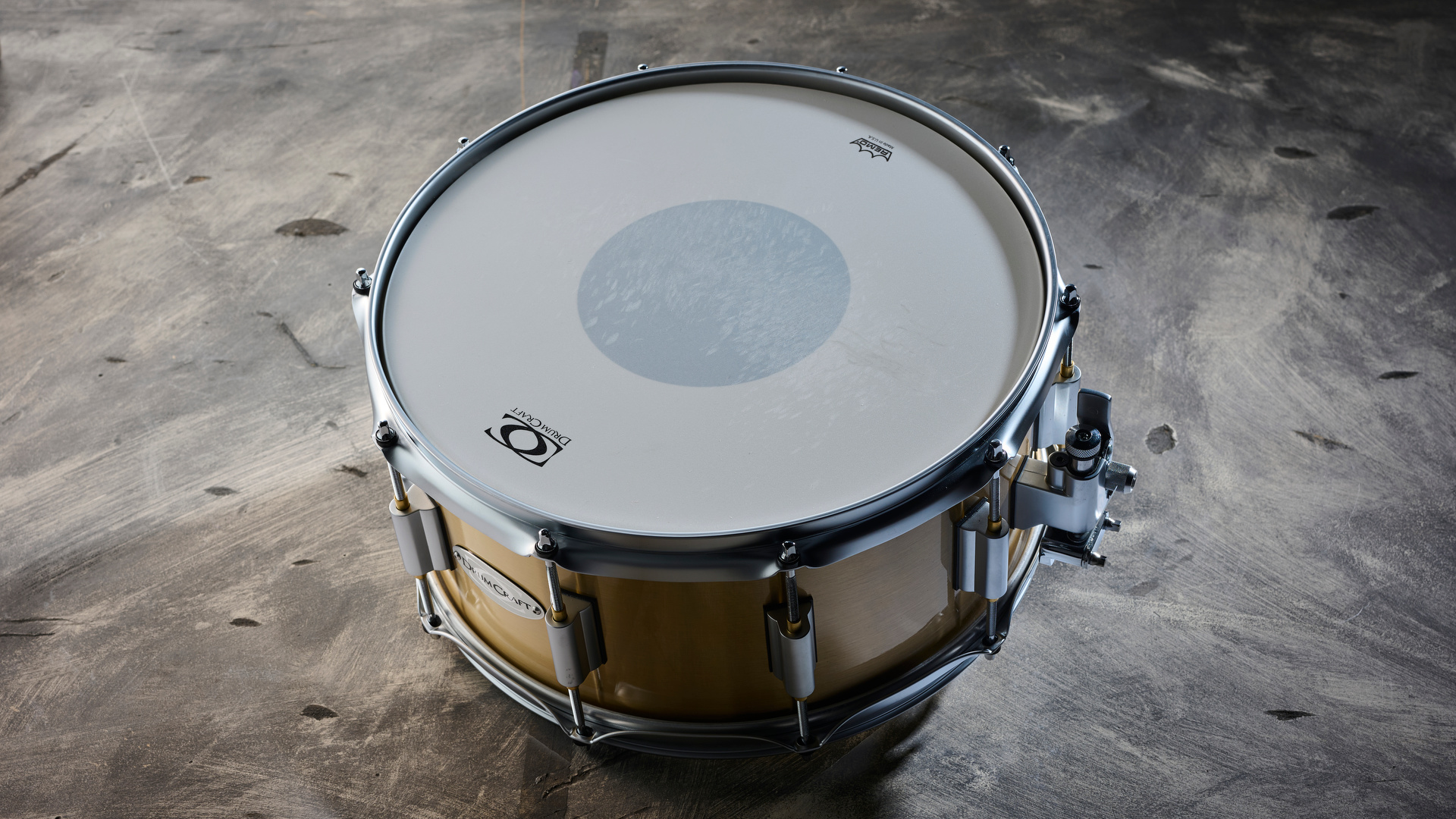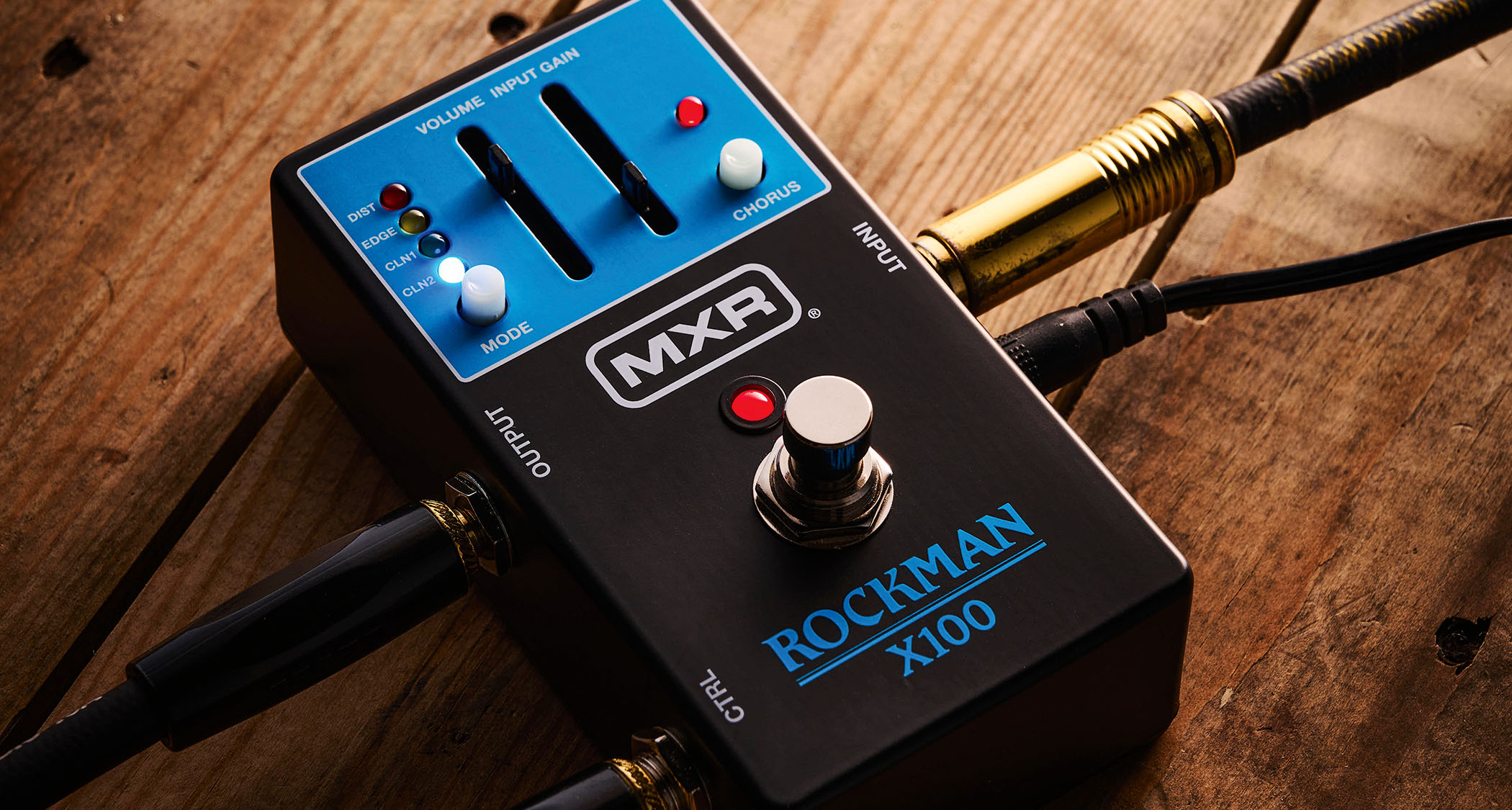MusicRadar Verdict
The Lambda hardware is great, but poor drivers and the strange decision to limit the use of the bundled reverb plug-in let it down.
Pros
- +
Great sound. No mains adapter needed. Front panel master volume control.
Cons
- -
Drivers give unacceptable latency. You’re not able to use Pantheon in all hosts. Not enough mic gain.
MusicRadar's got your back




Lexicon is one of those brand names that´s synonymous with quality. While we´re still seeing new companies entering the digital reverb market, Lexicon have been right at the heart of it since the 1970s, and the company are justly proud of the fact that 80% of platinum records used their digital processing somewhere in the production process.
Lexicon released their first USB audio interface, the Omega, in 2004, and the new Lambda is very similar, though it offers less connectivity. It follows a design blueprint that is now very familiar - an upright box connected via USB - and on the front panel you´ll find mic and line input level controls, an output level control, an instrument input, a headphone output, level/peak ladder LEDs and a simple mix balance control for monitoring the direct sound.
On the back panel there are two balanced line inputs on TRS 1/4¨ jack sockets and two balanced microphone inputs on XLR sockets. Unlike with some interfaces, the inputs don´t use XLR combo jacks and they aren´t switched - you can leave both mic and line sources plugged in at the same time and use the front panel to choose between or even mix them.
You also get a pair of TRS 1/4¨ jacks that function as insert points for the mic signals. These will be useful if you´ve got an analogue compressor that you can´t bear to replace, for example, but many computer musicians probably won´t need them. There are two line outputs on 1/4¨jacks and MIDI I/O is onboard too.
Lambda connects to your computer over USB and is designed to work just as well in a studio environment as it is ‘on the road´ with a laptop. It´s bigger than Digidesign´s Mbox and fatter than Focusrite´s Saffire, but it´s certainly lightweight enough to carry in a rucksack along with your laptop. The only slight problem is that it´s a bit awkward from a shape and size point of view.
Lambda gets all the juice it needs from the USB connection. While it´s true that laptop battery life is always a concern during location recording, the fact that it´s at least possible to record mains-free in remote places is reassuring. More importantly, it means that you have one less power adapter to carry around (or, more importantly, to remember to pack).
Microphone
Even without a PSU, Lambda can still provide 48V phantom power, so you can plug whatever type of microphone you want into it. Microphone gain, however, is extremely disappointing - when Lexicon´s engineers discovered that you have to shout into a microphone with the gain on full in order to make the peak lamps light up, didn´t they realise that these mic amps are nowhere near powerful enough?
Fortunately, the biggest surprise with Lambda is a pleasant one. We´re referring to its sound quality, which is not just a little better than other audio interfaces but substantially better. In fact, the sound is so good that when you first plug Lambda into your monitor speakers, it grabs your attention and makes you do an aural double-take.
Both the single instrument input and rear microphone inputs (despite their lack of gain) deliver top-class results. It´s comforting to be able to work with LED bar-graph metering on the front panel (rather than just peak lamps alone), and given that Lambda is designed for close-at-hand, desktop operation, it´s handy that the main output level knob controls speaker monitor and headphone levels.
But there are problems. The insubstantial software control panel only allows you to select latency levels that range from average to unusable, and even when we used an absurdly high latency setting, our version of Samplitude reported massive error counts on the recorded audio. This is highly unlikely to be a problem with our system, as we´ve used it to test many current interfaces without incident. As the extraordinary latency figures reported back from Cubase SX confirm, this is a driver design issue.
Latency
In fact, it feels like Lexicon´s software engineers haven´t grasped why Steinberg invented ASIO in the first place. ASIO was designed specifically to enable performers to hear their performances through software processing with imperceptible latency - that´s the whole point. You may as well just use Windows MME or DirectX drivers in conjunction with last-century direct monitoring features, such as those on Lambda´s front panel.
Then there´s the fact that you´re ‘not allowed´ to use the Pantheon reverb plug-in in hosts that aren´t ‘authorised´. Why not? If you´ve paid for something, then you should be able to use it whenever you need it. Pantheon isn´t free, after all.
Despite the underpowered microphone amps, Lambda is good audio hardware in an attractive and convenient box. However, it´s spoiled by its own device drivers and the fact that (in some cases) you´re not able to use the reverb plug-in you´ve already paid for. As such, it´s probably worth holding onto your cash to see if these software issues can be resolved.
MusicRadar is the number 1 website for music makers of all kinds, be they guitarists, drummers, keyboard players, djs or producers...
GEAR: We help musicians find the best gear with top-ranking gear round-ups and high- quality, authoritative reviews by a wide team of highly experienced experts.
TIPS: We also provide tuition, from bite-sized tips to advanced work-outs and guidance from recognised musicians and stars.
STARS: We talk to musicians and stars about their creative processes, and the nuts and bolts of their gear and technique. We give fans an insight into the actual craft of music making that no other music website can.

Trump’s tariffs: What’s the real cost to music and how come K-Pop is weathering the storm?

“He always had like this contemptuous smirk on his face whenever he was dealing with me like he thought I was a chimp or something”: White Lotus creator Mike White responds to the show’s composer’s claim that he’s quitting

Why Perry Farrell didn’t want Green Day on the Lollapalooza bill: “He was like, ‘They’re a boy band. I don’t want to book a boy band’”










